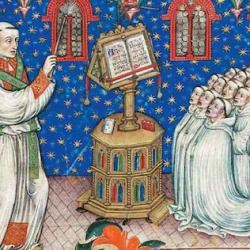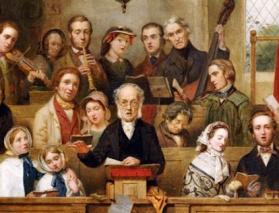R.W. Dale was the most prominent orthodox Congregationalist pastor in late Victorian England. As Herb Schlossberg puts it, he “was dismayed by the decline of the old theology in favor of an easy-going God, who was not to be feared. He thought rather that fear was a legitimate part of Christian faith, and that the sentimentality of so many hymns was deceptive in this respect” (Conflict and Crisis in the Religious Life of Late Victorian England, 118).
His criticisms of the hymnody of his time were excoriating:
The complaint I make is that the hymns which have been written for the last quarter of a century have no faith, or hope, or joy in them; they are all tears and sighs; they might have been written by people who never heard of the liberty with which Christ has made his people free. Moreover, they are singularly restricted in their subjects. They are mostly about Heaven, or about the human side of our Lord’s character and life, and in both cases are miserably sentimental. They are women’s hymns rather than men’s hymns; and they are the hymns of very weak hysterical women too. Those about our Lord are written in the style in which Romanists write about their saints; there is hardly ever any vision of the glory and majesty which shine through all His sufferings and shame. They excite pity for Christ rather than reverence. Indeed they might have been written by men, or rather by women, who had never heard that He was risen from the dead (quoted by Schlossberg, 118).
This is mostly on target, except the disparaging comments about women. If we take Scripture as our guide, women are capable of massively unsentimental hymns. Think Deborah celebrating Jael and her hammer, Hannah exulting in the God who throws down the proud, Mary’s Magnificat, Miriam’s song of the sea.
It’s a sad thing that some Christians today look to these late nineteenth-century hymns as the pinnacle of Christian hymnody, the oldies.













